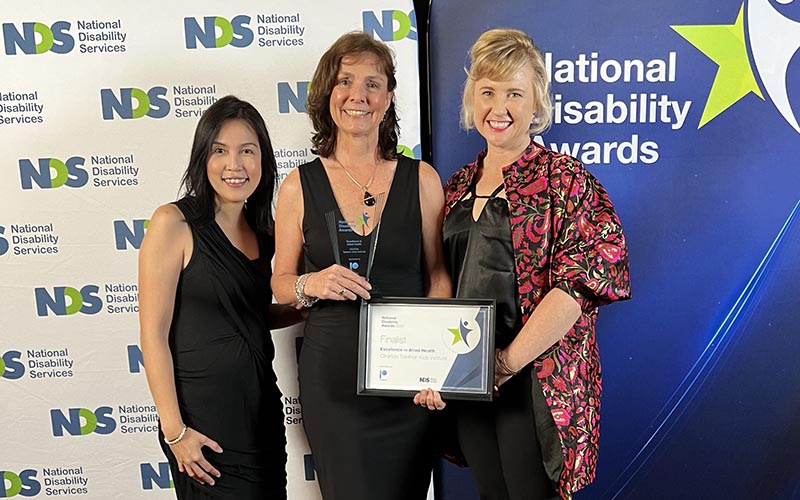Search
Showing results for "autism"

News & Events
The Kids Research Institute Australia’s CliniKids wins national disability awardCliniKids has won the Excellence in Allied Health category at the inaugural National Disability Awards, announced in Melbourne tonight.
Research
The psychological impact of paediatric burn injuries: a systematic reviewTo review and synthesise qualitative literature regarding the psychological outcomes following paediatric burn injuries, and to determine if children and adolescents who experience a burn injury have elevated risk of psychopathology following the injury.
Research
Psychiatry and PharmacologyDissociation can exist along a continuum from normal developmental experiences to severe and contributing to persistent mental illness and impeding normal development. It can also occur as a discreet symptom in a range of disorders or as a disorder itself, and can change depending on a number of factors such as the age and stage of development.
Research
The queers are all right: a content analysis of LGBTQIA + mental health on TikTokThe formation of online communities instils a sense of connectedness which can ameliorate the mental health concerns that result from minority stressors for lesbian, gay, queer, intersex, asexual, and other diverse genders/sexualities (LGBTQIA+). The aim of this study was to explore how LGBTQIA + people communicate social and mental health concerns on TikTok.
Research
“It's a big trauma for the family”: A qualitative insight into the psychological trauma of paediatric burns from the perspective of mothersDespite the medical and surgical improvements of paediatric burn injuries, burn injuries can be a painful and traumatic experience for the child and their family. It is therefore important to explore the experiences of caregivers who support their child throughout the burn journey. Thus, the purpose of this study was to explore the traumatic nature of paediatric burns on the family from a caregiver's perspective.
Research
"I just get scared it's going to happen again": a qualitative study of the psychosocial impact of pediatric burns from the child's perspectiveAdvances in medicine have improved the chances of survival following burn injuries, however, psychosocial outcomes have not seen the same improvement, and burn injuries can be distressing for both the child or young person, negatively affecting their wellbeing. Pediatric burn patients are at a higher risk of developing psychopathology compared to the general population.
Research
Knowledge, attitudes and practices related to the transition of emerging adults with type 1 diabetes from paediatric to adult care in Western AustraliaKeely Leanne Amy Bebbington Fried Finlay-Jones MClinPsych/PhD BSc DipEd MSpEd EdD BPsych(Hons), MPsych(Clinical), MHealthEcon, PhD (Clin Psych)

Research
Intellectual DisabilityAbout 2 per cent of children are estimated to have an intellectual disability. The cause of the condition is unknown in at least 50 per cent of cases.
Research
Child Attention Deficit Hyperactive Disorder Co morbidities on Family Stress: Effect of MedicationWe examined the degree of parental and child mental health in a community sample of children diagnosed with Attention Deficit Hyperactive Disorder and the...
